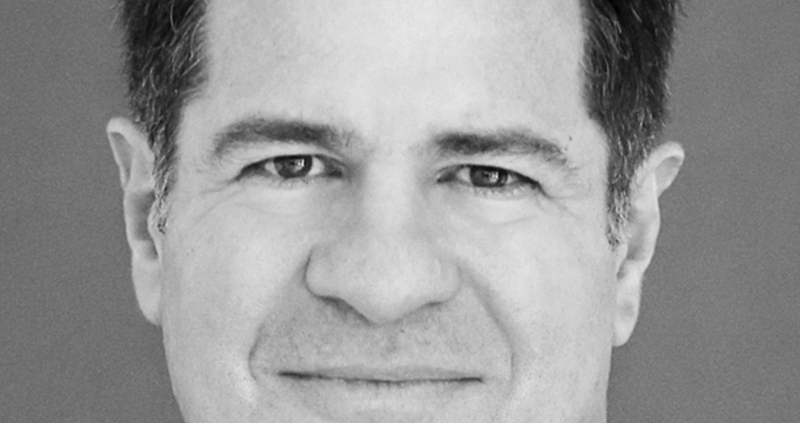Henry Chadwick Award: Rob Fitts
This article was written by Daniel R. Levitt
This article was published in Spring 2025 Baseball Research Journal
 ROB FITTS (1965– ) created a new branch of scholarship around the history of trans-pacific baseball and its broader impact. He brings original research, rigor, and insights to American player tours of Japan, Japanese player tours of the US, the integration of American baseball by Japanese players, and the integration of Japan by American players and players from other countries. Through his efforts we have a much deeper understanding of the historical relationship between American and Asian baseball.
ROB FITTS (1965– ) created a new branch of scholarship around the history of trans-pacific baseball and its broader impact. He brings original research, rigor, and insights to American player tours of Japan, Japanese player tours of the US, the integration of American baseball by Japanese players, and the integration of Japan by American players and players from other countries. Through his efforts we have a much deeper understanding of the historical relationship between American and Asian baseball.Fitts grew up in Philadelphia, becoming a baseball fan around 1975 when two things happened: the Phillies were finally good, and he and his grade school pals started a new game, throwing baseball cards on the playground and whoever fought hardest to pick each one up got to keep it. Fitts won enough that he started collecting baseball cards, eventually completing the 1975 series the old fashioned way—buying packs and trading duplicates. Shortly thereafter, his father, a chemistry professor, and mother, a music teacher, brought him to Cooperstown. Fitts played soccer in high school and rowed crew in college at the University of Pennsylvania, where he majored in history and archaeology.
It was while in graduate school at Brown—where he earned a PhD in American Archaeology—that Fitts reengaged with his love of baseball, reignited by Bo Jackson’s celebrated home run in the 1989 All-Star game. In 1993 he traveled to Japan with his wife Sarah, whom he met at Penn and married in 1990, when she was transferred there for her job as an attorney. Fitts attended his first game the day he landed. The couple spent two years in Japan, and Fitts became enamored with Japanese baseball.
While working for an archeological consulting firm in the late 1990s, Fitts had the opportunity to purchase a large collection of Japanese baseball cards. He established an online store and began selling some of the cards through eBay. To generate interest in the cards and players, Fitts began writing online about Japanese baseball. He quickly realized that he preferred researching and writing about Japanese baseball and quit his archaeology job to focus full time on writing and his store. In 2003 Fitts met Wally Yonamine, a Hawaiian of Japanese heritage who played one season for the San Francisco 49ers in the old AAFC and became the first post-war American to play professional baseball in Japan. This connection led Fitts to a more direct relationship with Japanese baseball and its participants.
One of the Fitts’s favorite baseball books is Lawrence Ritter’s The Glory of the Their Times. So for his first book, Fitts created Remembering Japanese Baseball, an oral history of older generation players from the Japanese leagues, including Yonamine. He later authored a full-length biography of Yonamine, who is now in the Japanese baseball hall of fame. Fitts also wrote a biography of a man who traveled the other way: Masanori Murakami, who became the first Japanese player to appear in the major leagues, with international repercussions.
With Banzai Babe Ruth: Baseball, Espionage, and Assassination during the 1934 Tour of Japan, Fitts penned the definitive account of the tour of Japan by American League stars, a goodwill visit that despite an enthusiastic reception could not stop Japan’s growing factionalism–which was on display during the tour–and eventual confrontation with the US. Issei Baseball: The Story of the First Japanese American Ballplayers, documents and dramatizes the first Japanese professional team anywhere, a team of Japanese Americans that toured the United States in the 1900s and the often racially charged environment. Perhaps Fitts’s favorite book to write, Issei Baseball required microfilm research in Japan and interviews with the players’ descendants. Later in 2025 Fitts will be releasing his latest book, In the Japanese Ballpark: Behind the Scenes of Nippon Professional Baseball. Fitts interviewed a wide array of participants to share experiences from many perspectives, from general managers to beer sellers.
Fitts’s examination of trans-pacific baseball over the past two decades has enriched our understanding of both baseball history and our wider cultural journey. We can only hope that Fitts will continue with his research into this valuable field of scholarship.


